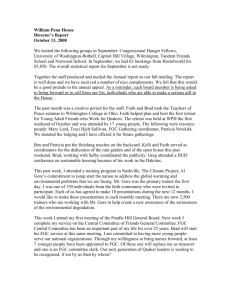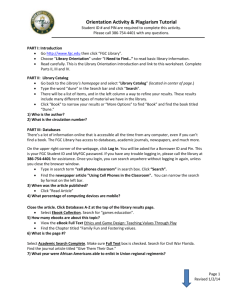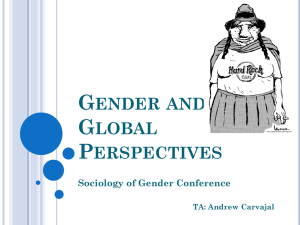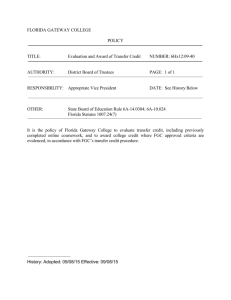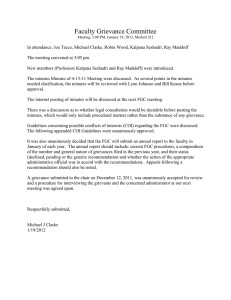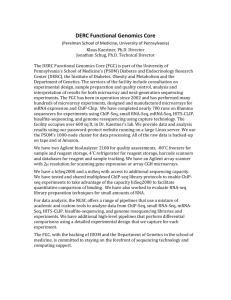6Hx12:06-50 - Florida Gateway College
advertisement
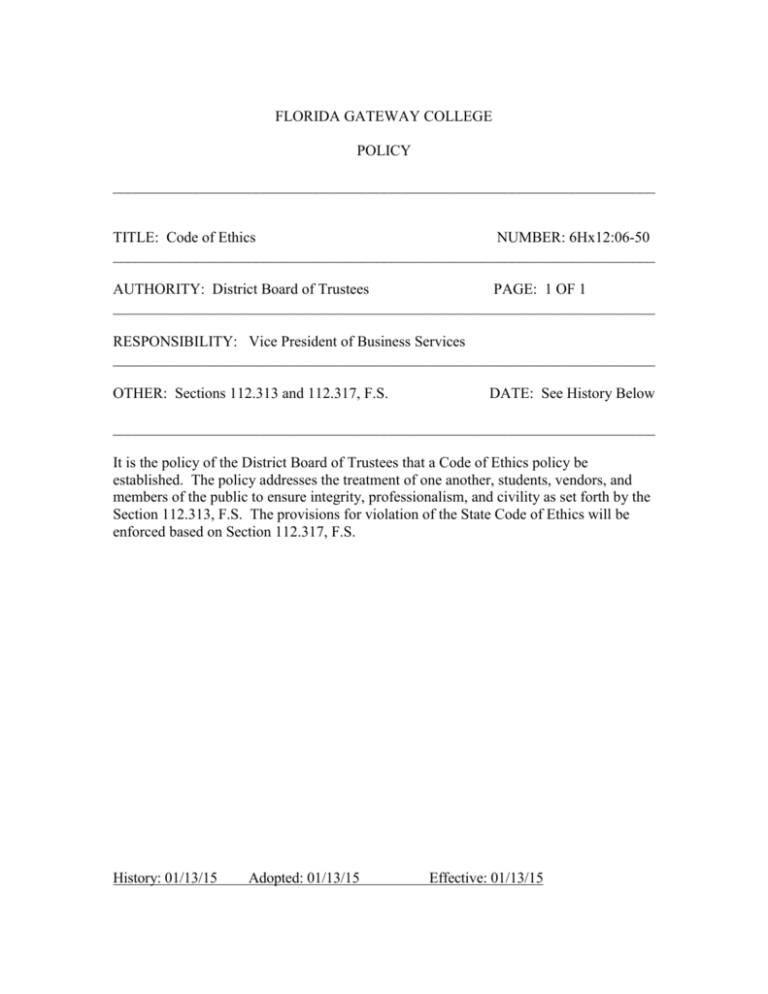
FLORIDA GATEWAY COLLEGE POLICY ________________________________________________________________________ TITLE: Code of Ethics NUMBER: 6Hx12:06-50 ________________________________________________________________________ AUTHORITY: District Board of Trustees PAGE: 1 OF 1 ________________________________________________________________________ RESPONSIBILITY: Vice President of Business Services ________________________________________________________________________ OTHER: Sections 112.313 and 112.317, F.S. DATE: See History Below ________________________________________________________________________ It is the policy of the District Board of Trustees that a Code of Ethics policy be established. The policy addresses the treatment of one another, students, vendors, and members of the public to ensure integrity, professionalism, and civility as set forth by the Section 112.313, F.S. The provisions for violation of the State Code of Ethics will be enforced based on Section 112.317, F.S. History: 01/13/15 Adopted: 01/13/15 Effective: 01/13/15 FLORIDA GATEWAY COLLEGE PROCEDURE ________________________________________________________________________ TITLE: Code of Ethics PAGE: 1 OF 4 ________________________________________________________________________ AUTHORITY: District Board of Trustees DATE: SEE HISTORY BELOW ________________________________________________________________________ RESPONSIBILITY: Vice President for Business Services ________________________________________________________________________ NUMBER OF RELATED BOARD POLICY: 6Hx12:06-50 ________________________________________________________________________ Purpose: To establish a Code of Ethics for all employees of Florida Gateway College (FGC). Statement of ethical principles and responsibilities All employees of FGC are expected to treat one another, our students, our vendors, and members of the public with integrity, professionalism, and civility. Employees are expected to comply with the applicable laws and regulations expected of all citizens and specifically, as FGC employees, to meet the ethical standards set forth in the Standards of Conduct for public officers, employees of agencies and local government attorneys set forth in Section 112.313, F.S. 1. All employees share fundamental responsibilities in our conduct with others. a. To FGC students, we aspire to create an equitable environment and provide fair access to educational opportunities and resources, the right to explore and express ideas, and the opportunity to achieve success in an environment free from harassment and discrimination. b. To all FGC employees, we offer the opportunity to work to their utmost potential in an environment dedicated to continuous improvement and free from discrimination and harassment. c. To FGC faculty, we aspire to create an environment that provides the academic freedom appropriate to explore the full spectrum of ideas in teaching. Procedure 6Hx12:06-50 (continued) Page 2 of 4 d. To FGC trustees, we owe our honest, informed judgment on issues related to the operation of the College and our careful and lawful stewardship of resources. e. To FGC community partners, we pledge to conduct our business with integrity and to strive to be a dedicated partner in meeting our community’s educational workforce, and economic development needs. 2. In addition, all employees are expected to adhere to the following ethical principles. These overarching ethical principles are intended to serve as a foundation for the conduct of day-to-day operations of the College and a general guide for decision-making by College employees. a. All FGC employees are expected to treat others with respect regardless of differences or points of view. Every College employee is expected to contribute to a safe environment where the free exchange of ideas is encouraged and to treat one another with dignity. b. All College employees are expected to steward resources in the most thoughtful and prudent manner. Employees are expected to ensure that all resources are used for the designated purpose. c. All College employees are expected to conduct their business with integrity. Potential conflicts of interest or commitment must be thoughtfully considered and disclosed to the immediate supervisor as soon as possible. d. No College employee shall use a position of authority for personal/private gain or advantage, to influence or encourage others to perform inappropriate or illegal acts, or to violate laws, regulations, or College policies. e. Employees should avoid any apparent conflict of interest and must avoid any conflict between his or her professional responsibilities and personal interests in dealings or relationships with students. f. The College maintains confidential and personnel records for a variety of business reasons, and some records must be kept confidential as a matter of federal and state law. All College employees are expected to protect such information through proper safeguards and follow all related policies pertaining to confidentiality in the regular conduct of College business. Procedure 6Hx12:06-50 (continued) Page 3 of 4 State of Florida Code of Ethics for Public Employees 1. Under the provisions of Section 112.313, Florida Statues, College employees are subject to certain provisions of the Code of Ethics for Public Officers and Employees. All College employees shall comply with the applicable provisions of the Code including, but not limited to the following: a. Solicitation and Acceptance of Gifts No employee shall solicit or accept anything of value to the recipient, including a gift, loan, reward, or promise of future employment, favor, or service, based upon any understanding that the official action or judgment of the employee would be influenced thereby. b. Doing Business with the College Subject to certain exemptions as set forth in Section 112.313(12), Florida Statutes, no employee acting in a private capacity shall rent, lease, or sell any realty, goods, or services to the College. In addition, no employee acting in his or her official capacity as a purchasing agent, or otherwise acting in his or her official capacity, shall either directly or indirectly purchase, rent, or lease any realty, goods, of services for FGC from any business entity of which the employee or employee’s spouse or child is an officer, partner, director, or proprietor or has a material interest. c. Unauthorized Compensation No employee or his or her spouse or minor child shall, at any time accept any compensation, payment, or thing or value when such employee knows, or, with the exercise of reasonable care, should know, that it was given to influence any action in which the employee was expected to participate in his or her official capacity. d. Misuse of Public Position No employee shall corruptly use or attempt to use his or her official position or any property resource which may be within his or her trust, or perform his or her official duties, to secure a special privilege, benefit, or exemption for himself or herself or others. e. Disclosure or Use of Certain Information No employee shall disclose or use information not available to members of the general public and gained by reason of his or her official position for his or her personal gain or benefit or for the personal gain or benefit of any other person or business entity. f. Employees Holding Office No employee shall hold office as a member of the District Board of Trustees while, at the same time, continuing as an employee of the College. 2. Violations of State Code of Ethics for Public Employees: Penalties Violation of any provision of Section 112.313, F.S. shall subject the employee to civil penalties provided in Section 112.317, F.S., which include, but are not limited to, dismissal from employment; as well as subject the violator to the criminal penalties provided in Section 112.317, F.S..
